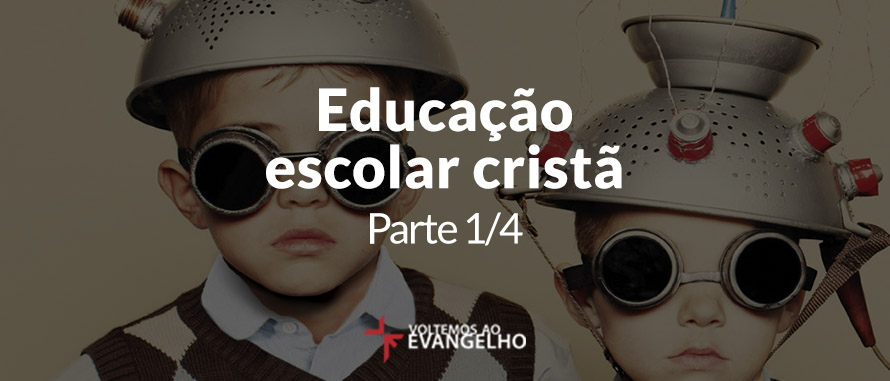what is it?
If you ask a group of people, “What is Christian education?”, we will certainly get the most varied answers. In fact, the concept of Christian education? This is not clear and defined in the minds of the majority. Even believers, who would have a particular interest in the subject, misunderstood the concepts. The problem is not the absence of opinions, but the multiplicity of misconceptions on the subject, which are outside the biblical ideal of the question, or perhaps the confusion of terms that require more precise definitions.
- We have three terms to define: (1) secular education.
- (2) religious education.
- And (3) Christian education.
- Secular education is the educational system developed with the absence of God and his interaction with creation as a premise.
- That prevails in our schools.
- Which we have dealt with in the previous chapters of the first section (” The stage? ‘).
- Which hides in a so-called halo of’ neutrality ‘.
- Distorts reality.
- Because it presents only a vision of life.
- It lacks the transcendent; the context of the goal and the relationship between the Creator.
- The creation and the creatures are missing.
By religious education, we define a specific instruction, in the Christian field, on the doctrines of the Bible; on the way and the plan of salvation; about the great goals of each person’s life and their responsibilities to the Creator of everything and each other. Religious education would be the legitimate field of action of the Church and the various tools it uses to achieve educational goals, such as Sunday school, doctrine classes, evangelism, etc. It turns out that this area is often called Christian education. Christian education congresses are primarily aimed at preparing and equipping teachers for Sunday school. for religious instruction In this regard, the most appropriate term for this area of education would be religious education and non-Christian education.
The term Christian education could be limited to the designation of instruction, in all areas of knowledge, which is taught under the recognition of the creator God and what is revealed to us in his Word about his attributes and our people. English-speaking countries. Therefore, it has also been used in our country, but always at risk of confusion with the term religious education, so we migrate to use the longer term, but clearer and more accurate: Christian school education. used in this book.
However, the most important thing is to establish an understanding of the concept and implications of this vision, in the educational process, it is even necessary to make a careful assessment of our philosophy of life, because the future of our person and our children can depend very much on the clarity of vision we have on this subject and the closeness that our ideas have with the prescriptions of the Word of God.
The objective of Christian school education should be to provide the educated person not only with a varied knowledge of each other and of his or her own physical and moral constitution, but also to provide an integrated and coherent vision. linked to the Creator and his designs. When we examine Psalm 19, we find this “unified vision of life. “
We can divide this psalm into three parts
Now we might ask, “But what does this have to do with Christian school education?”We respond: it is precisely this unified vision of the life provided in this psalm that we seek to achieve through the application of Christian school education.
(a) In its first part, the Psalm presents the dominion of nature as a right of God, due to his position as Creator and Lord of his creation. In Genesis 1:28 (and other passages) this kingdom is given to man. So we see the need to exercise such dominion through knowledge of the laws that govern creation. The acquisition of this knowledge is, therefore, theologically legitimized in the correct interpretation of the Scriptures. (b) This knowledge, however, cannot be separated or dissociated from God’s law, his will, and his purposes for humanity. They must be taught and received within a framework of thought that reflects biblical premises and propositions about the nature of man and his current state. This is what we read in the second part of the psalm. (c) Finally, in the third and last part, we see the reflection of all these truths in the practical lives of people, as servants of Almighty God. In other words, the facts learned, the way we relate them to each other and to the Creator, have very important effects on our moral formation and on our behavior as citizens.
If we can verify and accept the need for a unified philosophy of life that presents the biblical perspective on the absorption of knowledge and its application in our existence, we must explore in more detail certain definitions and principles that can help us clarify our concept of “Christian school education”.
In this book, Solano Portela makes a critical assessment of the current scenario of Brazilian education, both lay and religious, according to him, the predominant pedagogical proposal in Brazil goes beyond a pedagogical methodology and contains serious contradictions with the principles of the Christian faith. From this analysis, Solano proposes the development of a pedagogy for Christian school education, called redemptive pedagogy, which points to an education of excellence based on a biblical vision of the world of life and the world.
Check

